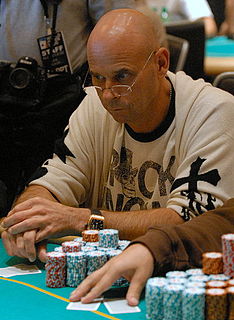A Quote by Werner Herzog
The wonderful thing is that Clive [Oppenheimer ] insisted on training his camera - his private camera - on me at one point. We were discussing things such as how to avoid certain dangers, while reflecting on a volcano that had threatened to explode 40 years ago.
Related Quotes
The camera has a mind of its own--its own point of view. Then the human bearer of time stumbles into the camera's gaze--the camera's domain of pristine space hitherto untraversed is now contaminated by human temporality. Intrusion occurs, but the camera remains transfixed by its object. It doesn't care. The camera has no human fears.
Clive [Oppenheimer] and I figured out that I'm the only one probably in the film industry who is clinically sane. I say that as a joke, but there's a grain of truth to it. I'm not a stupid daredevil who jumps into the crater of the volcano to get the closest close-up, I'm not one of those. And you have to be aware that you have a crew with you and you are responsible.
Making photos is helpful of course to master the craft. To get comfortable with the camera. Learn what a camera can do and how to use the camera successfully. Doing exercises for example if you try to find out things that the camera can do that the eye cannot do. So that you have a tool that will do what you need to be done. But then once you have mastered the craft the most important thing is to determine why you want to shoot pictures and what you want to shoot pictures of. That's where the thematic issue comes to life.



































